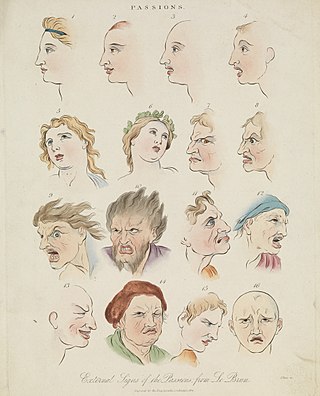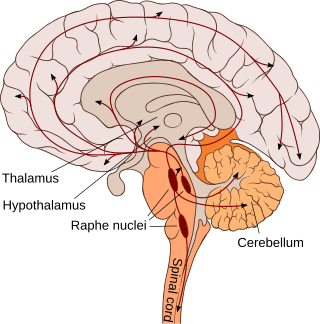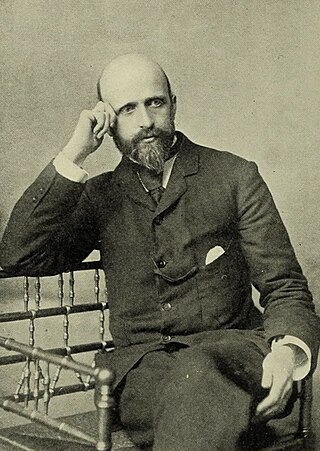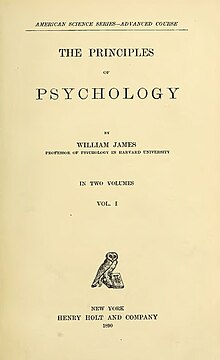
Consciousness, at its simplest, is awareness of internal and external existence. However, its nature has led to millennia of analyses, explanations and debate by philosophers, theologians, and all of science. Opinions differ about what exactly needs to be studied or even considered consciousness. In some explanations, it is synonymous with the mind, and at other times, an aspect of mind. In the past, it was one's "inner life", the world of introspection, of private thought, imagination and volition. Today, it often includes any kind of cognition, experience, feeling or perception. It may be awareness, awareness of awareness, or self-awareness either continuously changing or not. The disparate range of research, notions and speculations raises a curiosity about whether the right questions are being asked.

Emotions are mental states brought on by neurophysiological changes, variously associated with thoughts, feelings, behavioral responses, and a degree of pleasure or displeasure. There is no scientific consensus on a definition. Emotions are often intertwined with mood, temperament, personality, disposition, or creativity.
Phenomenology is the philosophical study of objectivity – and reality more generally – as subjectively lived and experienced.

William James was an American philosopher, psychologist, and the first educator to offer a psychology course in the United States. James is considered to be a leading thinker of the late 19th century, one of the most influential philosophers of the United States, and the "Father of American psychology."

Sentience is the ability to experience feelings and sensations. The word was first coined by philosophers in the 1630s for the concept of an ability to feel, derived from Latin sentiens (feeling), to distinguish it from the ability to think (reason). In modern Western philosophy, sentience is the ability to experience sensations. In different Asian religions, the word "sentience" has been used to translate a variety of concepts. In science fiction, the word "sentience" is sometimes used interchangeably with "sapience", "self-awareness", or "consciousness".
Philosophy of psychology is concerned with the history and foundations of psychology. It deals with both epistemological and ontological issues and shares interests with other fields, including philosophy of mind and theoretical psychology. Philosophical and theoretical psychology are intimately tied and are therefore sometimes used interchangeably or used together. However, philosophy of psychology relies more on debates general to philosophy and on philosophical methods, whereas theoretical psychology draws on multiple areas.

Instinct is the inherent inclination of a living organism towards a particular complex behaviour, containing innate (inborn) elements. The simplest example of an instinctive behaviour is a fixed action pattern (FAP), in which a very short to medium length sequence of actions, without variation, are carried out in response to a corresponding clearly defined stimulus.

The cerebrum, telencephalon or endbrain is the largest part of the brain containing the cerebral cortex, as well as several subcortical structures, including the hippocampus, basal ganglia, and olfactory bulb. In the human brain, the cerebrum is the uppermost region of the central nervous system. The cerebrum develops prenatally from the forebrain (prosencephalon). In mammals, the dorsal telencephalon, or pallium, develops into the cerebral cortex, and the ventral telencephalon, or subpallium, becomes the basal ganglia. The cerebrum is also divided into approximately symmetric left and right cerebral hemispheres.
The specious present is the time duration wherein one's perceptions are considered to be in the present. Time perception studies the sense of time, which differs from other senses since time cannot be directly perceived but must be reconstructed by the brain.

The main concepts of the Cannon–Bard theory are that emotional expression results from the function of hypothalamic structures, and emotional feeling results from stimulations of the dorsal thalamus. The physiological changes and subjective feeling of an emotion in response to a stimulus are separate and independent; arousal does not have to occur before the emotion. Thus, the thalamic region is attributed a major role in this theory of emotion. The theory is therefore also referred to as the thalamic theory of emotion.

Philosophy of mind is a branch of philosophy that studies the ontology and nature of the mind and its relationship with the body. The mind–body problem is a paradigmatic issue in philosophy of mind, although a number of other issues are addressed, such as the hard problem of consciousness and the nature of particular mental states. Aspects of the mind that are studied include mental events, mental functions, mental properties, consciousness and its neural correlates, the ontology of the mind, the nature of cognition and of thought, and the relationship of the mind to the body.
Phenomenology or phenomenological psychology, a sub-discipline of psychology, is the scientific study of subjective experiences. It is an approach to psychological subject matter that attempts to explain experiences from the point of view of the subject via the analysis of their written or spoken words. The approach has its roots in the phenomenological philosophical work of Edmund Husserl.
The stream of consciousness is a metaphor describing how thoughts seem to flow through the conscious mind. Research studies have shown that we only experience one mental event at a time as a fast-moving mind stream. The term was coined by Alexander Bain in 1855 in the first edition of The Senses and the Intellect, when he wrote, "The concurrence of Sensations in one common stream of consciousness enables those of different senses to be associated as readily as the sensations of the same sense". But it is commonly credited to William James often considered to be the father of American psychology who used it in 1890 in his The Principles of Psychology. The full range of thoughts—that one can be aware of—can form the content of this stream.
The International Library of Psychology, Philosophy and Scientific Method was an influential series of monographs published from 1922 to 1965 under the general editorship of Charles Kay Ogden by Kegan Paul, Trench Trubner & Co. in London. This series published some of the landmark works on psychology and philosophy, particularly the thought of the Vienna Circle in English. It published some of the major psychologists and philosophers of the time, such as Alfred Adler, C. D. Broad, Rudolf Carnap, F. M. Cornford, Edmund Husserl, Carl Jung, Kurt Koffka, Ernst Kretschmer, Bronisław Malinowski, Karl Mannheim, George Edward Moore, Jean Nicod, Jean Piaget, Frank P. Ramsey, Otto Rank, W. H. R. Rivers, Louis Leon Thurstone, Jakob von Uexküll, Hans Vaihinger, Edvard Westermarck, William Morton Wheeler, Ludwig Wittgenstein, J. N. Findlay and others. Most of the 204 volumes in the series have been reprinted, some in revised editions.
Functional psychology or functionalism refers to a psychological school of thought that was a direct outgrowth of Darwinian thinking which focuses attention on the utility and purpose of behavior that has been modified over years of human existence. Edward L. Thorndike, best known for his experiments with trial-and-error learning, came to be known as the leader of the loosely defined movement. This movement arose in the U.S. in the late 19th century in direct contrast to Edward Titchener's structuralism, which focused on the contents of consciousness rather than the motives and ideals of human behavior. Functionalism denies the principle of introspection, which tends to investigate the inner workings of human thinking rather than understanding the biological processes of the human consciousness.

Henry Rutgers Marshall was an American architect and psychologist.

The study of the evolution of emotions dates back to the 19th century. Evolution and natural selection has been applied to the study of human communication, mainly by Charles Darwin in his 1872 work, The Expression of the Emotions in Man and Animals. Darwin researched the expression of emotions in an effort to support his materialist theory of unguided evolution. He proposed that much like other traits found in animals, emotions apparently also evolved and were adapted over time. His work looked at not only facial expressions in animals and specifically humans, but attempted to point out parallels between behaviors in humans and other animals.
The history of evolutionary psychology began with Charles Darwin, who said that humans have social instincts that evolved by natural selection. Darwin's work inspired later psychologists such as William James and Sigmund Freud but for most of the 20th century psychologists focused more on behaviorism and proximate explanations for human behavior. E. O. Wilson's landmark 1975 book, Sociobiology, synthesized recent theoretical advances in evolutionary theory to explain social behavior in animals, including humans. Jerome Barkow, Leda Cosmides and John Tooby popularized the term "evolutionary psychology" in their 1992 book The Adapted Mind: Evolutionary Psychology and The Generation of Culture. Like sociobiology before it, evolutionary psychology has been embroiled in controversy, but evolutionary psychologists see their field as gaining increased acceptance overall.
The James–Lange theory is a hypothesis on the origin and nature of emotions and is one of the earliest theories of emotion within modern psychology. It was developed by philosopher John Dewey and named for two 19th-century scholars, William James and Carl Lange. The basic premise of the theory is that physiological arousal instigates the experience of emotion. Previously people considered emotions as reactions to some significant events or their features, i.e. events come first, and then there is an emotional response. James-Lange theory proposed that the state of the body can induce emotions or emotional dispositions. In other words, this theory suggests that when we feel teary, it generates a disposition for sad emotions; when our heartbeat is out of normality, it makes us feel anxiety. Instead of feeling an emotion and subsequent physiological (bodily) response, the theory proposes that the physiological change is primary, and emotion is then experienced when the brain reacts to the information received via the body's nervous system. It proposes that each specific category of emotion is attached to a unique and different pattern of physiological arousal and emotional behaviour in reaction due to an exciting stimulus.

Buddhist thought and Western philosophy include several parallels.










